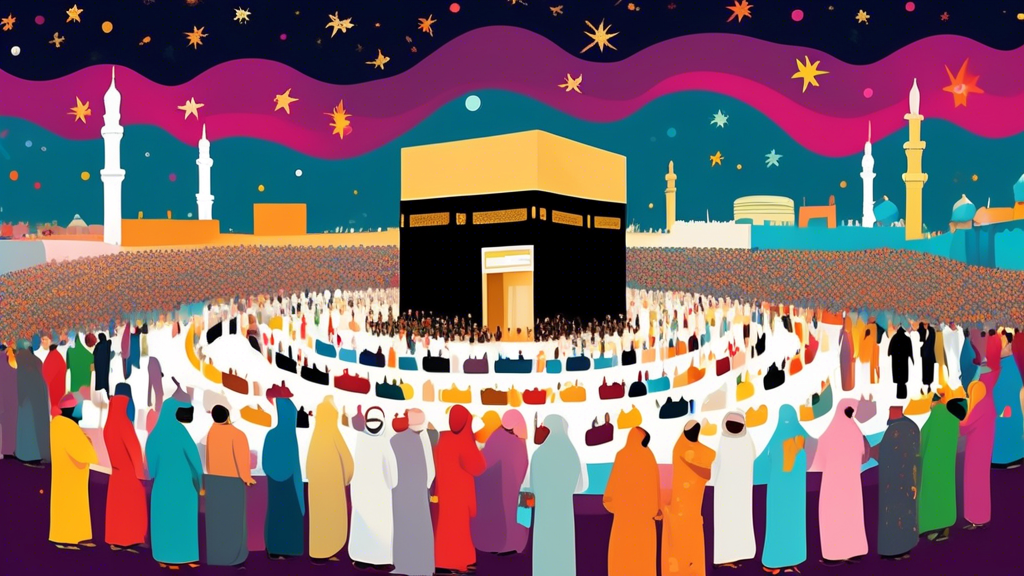The Islamic calendar, based on lunar cycles, dictates the timings for the Hajj pilgrimage and the subsequent celebration of Eid-ul-Adha. Both events are pivotal in the Muslim community worldwide. Here, we provide essential information about the dates, rituals, and significance of Hajj and Eid-ul-Adha for the year 2024.
Understanding the Islamic Lunar Calendar
The Islamic lunar calendar consists of 12 months but is approximately 10 to 12 days shorter than the Gregorian calendar used internationally. This means Islamic dates shift annually, affecting when rituals and celebrations like Hajj and Eid-ul-Adha occur each year.
Hajj 2024: Dates and Rituals
Hajj, one of the five pillars of Islam, must be undertaken by all adult Muslims, who are physically and financially able, at least once in their lifetimes. The pilgrimage centers around the holy city of Mecca in Saudi Arabia. In 2024, Hajj will take place over a period of five days, expected to fall around early July. The exact dates will be confirmed based on moon sightings, typically a day before the potential start date. The main rituals during this period include:
- Ihram: Upon entering the state of Ihram, pilgrims must adhere to several prohibitions such as not cutting hair or nails, not engaging in conflict, and wearing specific simple and unsown white clothes for men, while women wear plain and modest clothing covering everything but the face and hands.
- Tawaf: Pilgrims perform Tawaf, which involves walking seven times around the Kaaba, the cube-shaped building at the center of the Masjid al-Haram mosque in Mecca.
- Sai: This is the ritual of running or walking seven times between the hills of Safa and Marwah, reenacting Hagar’s search for water for her son Ishmael.
- Day of Arafat: Pilgrims gather at the plain of Arafat, near Mecca, for a day of prayer and reflection, which is considered the climax of the Hajj pilgrimage.
- Eid-ul-Adha: At the conclusion of Hajj, the festival of Eid-ul-Adha begins.
Eid-ul-Adha 2024: Festival of Sacrifice
Eid-ul-Adha, or the Festival of Sacrifice, commemorates the Prophet Ibrahim’s willingness to sacrifice his son as an act of obedience to God, before God replaced his son with a ram. This festival also marks the conclusion of Hajj. In 2024, Eid-ul-Adha is expected to begin on the evening of July 9th and continue until the evening of July 10th, though exact dates may vary slightly based on local moon sighting. Muslims worldwide celebrate by performing the following activities:
- Qurbani: The act of sacrificing a sheep, goat, cow or camel commemorates Ibrahim’s intended sacrifice. The meat is divided into three parts: one part for the family, one for friends and relatives, and one for the poor and needy.
- Eid Prayer: Muslims gather for a special prayer in their local mosques or at large venues.
- Charity: It is important to ensure even the less fortunate can celebrate by giving to charity (known as Zakat al-Fitr) and distributing part of the sacrificed animal’s meat.
- Feasting: Families and friends come together to share meals and celebrate.
Preparation and Travel Tips for Hajj 2024
For those planning to undertake Hajj in 2024, preparation is crucial. Given the physically demanding nature of the pilgrimage and the large crowds, it is advisable to maintain good physical health. Ensure timely vaccinations, and arrange accommodations and transportation well in advance to avoid last-minute complications.
Conclusion
Hajj and Eid-ul-Adha hold deep spiritual significance for Muslims worldwide. These events not only reflect profound acts of worship but also a sense of global unity within the Islamic community. For many, these events offer moments of reflection, devotion, and celebration. As we look towards Hajj and Eid-ul-Adha in 2024, participants are encouraged to prepare thoroughly and embrace the deeply transformative experiences these holy events offer.
